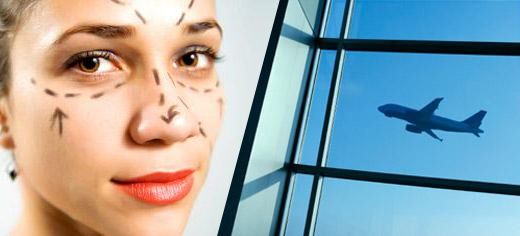
A study of the experiences of cosmetic surgery tourists, led by the University of Leeds, challenges widely-held perceptions about the safety and motives of people travelling overseas for treatment.
The two-year study, ‘Sun, Sea, Sand and Silicone’, is the first to use in-depth interviews, video and photo diaries and questionnaires to analyse cosmetic surgery tourism from the perspective of the patient’s experience. Its early findings, based on the accounts of more than 100 patients from the UK, Australia and China, as well as 100 workers involved in the industry, are presented at a stakeholder event in Leeds on 24 June 2013.
While bad experiences have typically grabbed headlines, the researchers found that 98% of the patients in the study would repeat the procedure in the same country and medical facility, if necessary. Many of the patients also praised the clinics for diagnosing and treating various underlying health problems during pre-surgery tests.
The profiles of the patients also challenge the stereotype of a cosmetic surgery tourist as being a wealthy, glamorous and globe-trotting westerner who is exploiting low-wage economies.
“The patients that we interviewed were ordinary people on modest incomes – administrators, nurses, shop workers – who travelled abroad because they couldn’t afford to have the surgery at home ,” says Professor Ruth Holliday from the University of Leeds, who led the international research team. “Some patients from the UK commented that private surgeons at home viewed them as ‘walking cheque books’, whereas surgeons abroad saw them as a ‘whole person’,” she adds.
Furthermore, “investing” in their physical appearance was only one of four motivating factors for opting for cosmetic surgery. Other reasons given by patients were correction, such as ear pinning and nose reshaping; repair, such as post-pregnancy breast uplift or ‘tummy tuck’; and anti-aging, such as a face lift or hair transplant.
The findings also show that the quality of the surgeon, rather than the desirability of the destination, was the key deciding factor in choosing the location. Many patients reported that they enjoyed some sightseeing during their trip, but the emphasis was on travelling for affordable surgery and then returning home as quickly as possible.
When asked how they had selected a surgeon, the researchers found that people preferred reading reviews from other patients on Facebook, while the advice provided by surgeons, clinics or cosmetic surgery tourism agents was often seen as being tainted by profit motives.
The study is funded by the Economic & Social Research Council (ESRC).
Further information:
Professor Ruth Holliday is available for interview. Please contact Sarah Reed, Press Officer, University of Leeds; phone 0113 34 34196 or email s.j.reed@leeds.ac.uk
The final report from the ‘Sun Sun, Sea, Sand and Silicone’ study can be downloaded from the project’s website.